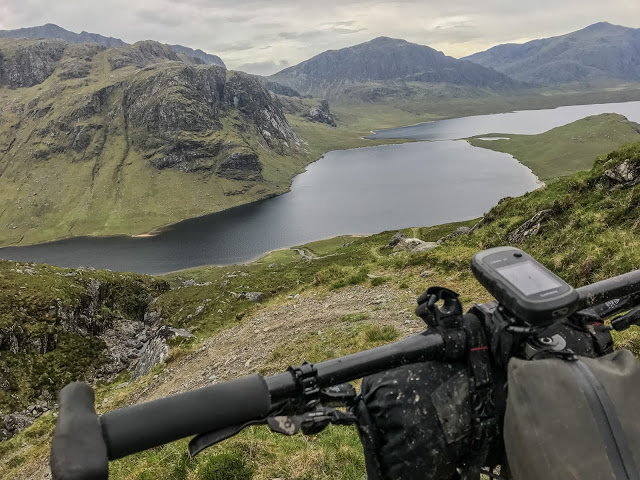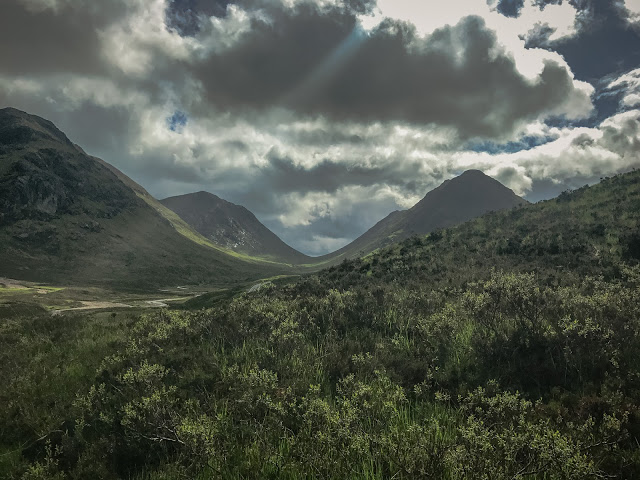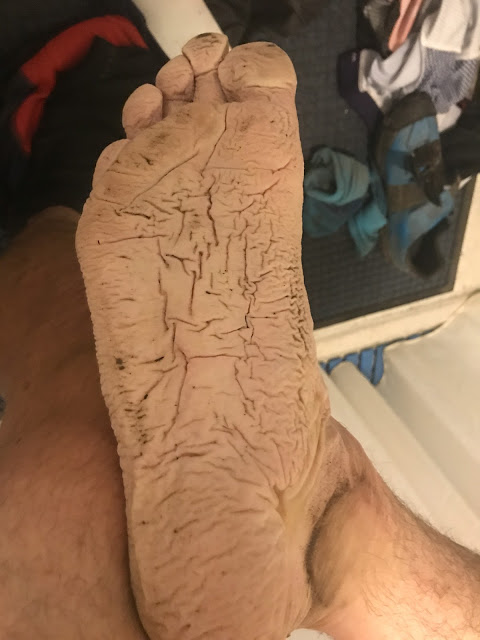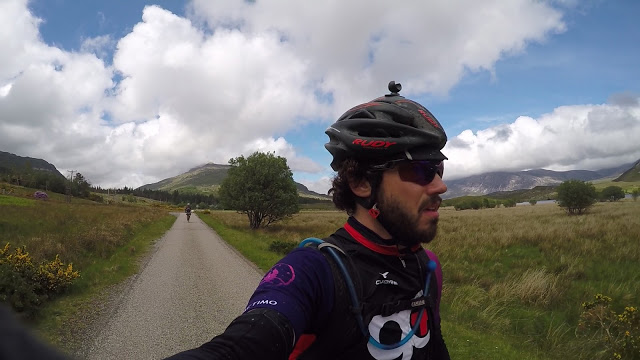The Highland Trail has very quickly secured itself a seat at the top table of bikepacking ITT. It’s not the longest test of bike and rider but its wild and often unforgiving nature can provoke both fear and awe in equal measure. As the Highland Trial’s notoriety has spread, the number of riders from further afield finding themselves in Tyndrum at the end of May, has grown. One rider to make the pilgrimage this year, was Neil Beltchenko – arguably one of the best ITT racers in the world. I don’t think anyone doubted he’d finish or that he’d record a good time in doing so but I’m not sure just how many expected him to finish in under three and a half days!
The fasted man ever on the Highland Trail, very kindly agreed to answer some questions for us and here’s what he had to say.
1/ While the bikepacking world generally favours simplicity, you were riding a full suspension bike on the HT. Do you think that proved to be an advantage?
Updated technology has translated to more reliable bikes. Ever since I have been into bikepacking, I have used a full suspension rig. It’s more comfortable in every regard. I also decided to use a dropper post, which was a huge advantage while descending. Sure, there is something to be said about a steel hardtail, but for a short race such as the HT 550, I felt comfortable running a full suspension rig. I have yet to have something go wrong (knock on wood), and I service my suspension more than most which makes me feel a little better about my decision.
 |
| Full suspension? Probably not a bad idea at this point. |
2/ How do you cope with so little sleep. Is it something you can naturally do or have you developed the ‘skill’?
In my daily life I likely sleep more than most people, around 8 hours a night. When I race, it’s a completely different story. I have come to figure out how much sleep I actually need in races like these. For shorter races like the Colorado Trail Race or Highland Trail, I know I will only be out there for three nights, so if I can lay down an hour each night, I should be fine. I did this in my record setting run on the CT last year, and I felt good, I had very few significant sleepy moments or hallucinations. It’s all about learning about yourself and figuring out how your body works in certain conditions. I should say it did not happen over night, it has been a trial and error experience for the past 4 years of bikepack racing.
3/ Are there any low particular moments from the race that stick in your mind?
The Ben Alder singletrack descent is pretty high on the list. Nearly falling asleep on the long boring descent outside of Fort Augustus is also up there, because it was cold, rainy, and early. Once I got to Fort Augustus for the second time, it was like a complete 180. I knew the trail back to Tyndrum was rather quick. Another really frustrating moment were the head winds into Oykle Bridge on the 2nd day, but I was still rather fresh, so it was not too demoralizing. I barked a lot of sighs during the ridiculous hike-a-bike on the most northern portion of the route, but it was beautiful, and I was riding with Chris. Riding with others alleviates those low moments.
4/ What did you carry in terms of ‘sleeping kit’?
I carried a Marmot Atom 40 degree bag, and a Montbell bivvy. This is a typical set up for me, but I may bring a pad the next time I travel overseas as I had some difficulty with the time change out there. It was tough going for me to fall asleep. I think if you really want to feel good before a race like this, getting their a week prior would be best.
 |
| Pretty? Yes but different when you’re trying to get through it with a clock ticking in your ear. |
5/ Conditions were pretty good this year. Do you think you’d have been much slower had they been worse?
Crazy to think conditions were good this year. I endured plenty of rain every day, saturated rock and trail, and I was wet and dealing with my rain coat a lot. I ended up just keeping it on after I became so frustrated with packing it in my bag and taking it back out. The cooler temperatures allowed me to do this as I never was really overheating. Personally, I think it can go faster if conditions were a bit better. I ended up walking most of Torridon which is a real shame cause that would have been an epic downhill.
6/ On a scale of 1 to 10, how ’tough’ would you rate the HT compared to other bikepacking ‘races’ you’ve done?
It’s hard to say, but the Colorado Trail Race is harder with more hike-a-bike and less oxygen. There is no real tangible way to compare it to the Arizona Trail. The Highland Trail has plenty of difficult sections, but then out of the blue you are on tarmac. I’m not complaining, it was pretty nice to jump on a paved path all of a sudden in the middle of nowhere. One thing that I thought was really tough were the bogs. Those things were just relentless, and there was no way to be prepared for them. If you have never done the route or endured them, just embrace it, you will sink in, get wet, and filthy!
 |
| Bad case of ‘crumpet foot’ … beware the bogs. |
7/ Do you enjoy the ‘hike-a-bike’ sections during a race or simply endure them?
I seek out races with Hike-a-bike, they typically bring you to some pretty remote places, and that’s something I really look for in an adventure. So yes, I enjoy it, even when it’s painful. Like many people say, it’s nice to use different muscles after riding your bike. There were two notable hike-a-bike sections, the northern most portion of the route, and the Fisher Field section, some that could rival the Colorado Trail.
8/ Many people were very surprised by your finish time but do you think it could be done faster and if so, what would make the difference?
Yes, this time will be beat. I think there are a number of factors that one can look at including my sleep issue. Even with similar weather, I think it can be beat especially if a veteran comes in with a plan. Being a veteran is a huge advantage, especially if you ride a similar or faster pace. I look forward to the record being broken, then maybe I’ll come back.
9/ Your stopped time was less than 9 hours. Did you carry most of your food from the start rather than resupplying as you went?
For these suffer-fest races, the goal is minimal stop time. To be honest, I would rather stop in the middle of nowhere to eat a meal that is packed in my bags rather than being sucked in by a town. I carried a lot of food from the start of this race because of the unknowns. I was not 100% sure on resupply locations, hours of operation, what each store had, and a little part of me likes certain foods, so I just need to pack what I know my body likes. It was a little scary getting to the Drumbeg and seeing a closed sign, because it would have been interesting if I couldn’t resupply on food there. Luckily the guys were watching the tracker to take care of our needs.
 |
| The man to beat on one of the few occasions he was actually stopped! |
10/ If you could give one piece of advice to anyone contemplating the HT, what would it be?
Be ready for the rain and for your feet to be wet the entire race. Be ready for the midges, but don’t dwell on that aspect too much. Be ready to hike your bike, and to bask in the beauty of Scotland. Don’t forget to enjoy the descents, there are plenty of them. It’s an incredible route, with incredible towns and vistas.
Big thank you to Neil for taking the time to answer the questions.
